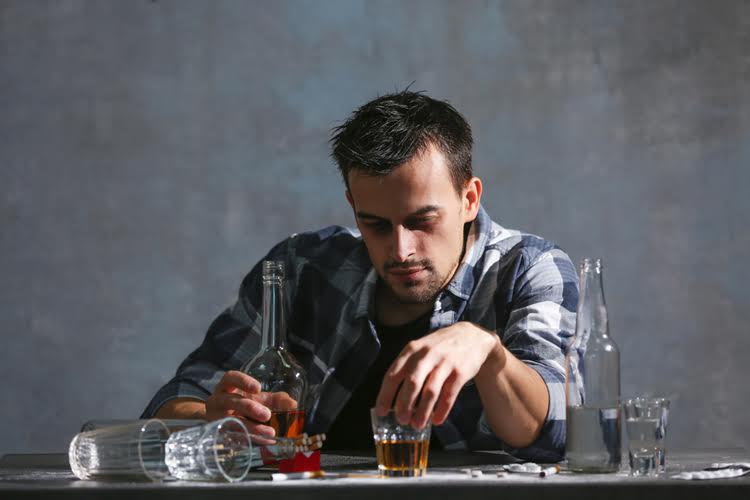This includes programs to address co-occurring mental health disorders (like anxiety, depression, or bipolar disorder) as well as alcohol addiction. Some of our research-backed and innovative therapies include CBT, motivational interviewing (MI), dialectical behavior therapy (DBT), eye movement desensitization and reprocessing (EMDR), motivational enhancement therapy (MET), and more. When you stop using alcohol altogether, you may experience withdrawal symptoms. The most severe withdrawal symptoms generally surface within the first 24 to 48 hours after your last drink. Your treatment provider will be able to give you medications in order to help alleviate some of the pain.
There is much misinformation about how opioid pain treatment affects people in recovery and those at high risk of addiction. Understanding how psychoactive drugs and addictions really work is crucial for better managing medical opioid use — and ending policies that interfere with both prevention and recovery. Another vital step is ensuring that treatment facilities are actually using evidence-based practices and hiring people who specialize in psychiatry and addiction. DCF — along with the insurance companies that fuel sham treatment facilities — should do a better job of verifying that proven methods are being used, Moran continued. There are various factors likely to influence someone’s ideal rehab choice. For example, gender, age, insurance coverage, facility location, co-occurring medical conditions, medical/psychological assessment, and other individual needs could factor into the decision.
Guiding Principles of Recovery
This will give you an opportunity to learn more about yourself, as well as how to keep your body healthy both inside and out. Contact a treatment provider today to learn more about alcoholism treatment facilities nearby. Development of novel pharmaceutical reagents is a lengthy, costly, and expensive process. Once a new compound is ready to be tested for human research use, it is typically tested for safety first via phase 0 and phase 1 clinical studies in a very limited number of individuals.
Recent research has identified many targets that might be important for future medication trials (67). For example, most of the medication development efforts in past decades have focused on pathways and targets typically related to reward processing and positive reinforcement. Furthermore, it is also becoming more and more apparent that other promising targets may be identified by looking at the brain not as an isolated system but rather as an organ with bidirectional interactions with peripheral systems. Examples of the latter approach include the growing evidence suggesting a potential role of inflammation and neuroinflammation and of the gut-liver-brain axis in the neurobiological mechanisms that regulate the development and/or maintenance of alcohol use disorder (107–109). Moving medications development from phase 1 to phase 2 and 3 trials has also been a difficulty in the field.
Family Therapy
Various factors such as your medical history, support system and personal motivation can all play a role in the success of your recovery. Treatment should be supervised by a team of medical specialists at a rehab facility. Throughout the country, alcohol treatment https://trading-market.org/when-drinking-after-work-becomes-a-problem-alcohol/ centers are staffed with professionals who will guide you through each step of the recovery process – from detox to life after rehab. Think of them as your 24/7 support system who are there to celebrate your successes and work with you through any challenges.
Others are outpatient programs, where you live at home and go to the center for treatment. When asked how alcohol problems are treated, people commonly think of 12-step programs or 28-day inpatient rehab but may have difficulty naming other options. In fact, there are a variety of treatment methods currently available, thanks to significant advances in the field over the past 60 years. In Florida, some bad-faith treatment facilities offer hope and promises of a quick recovery in the beautiful Sunshine State.
HISTORY OF TREATMENT FOR ALCOHOL USE DISORDER
NIAAA and other organizations are conducting research to identify genes and other factors that can predict how well someone will respond to a particular treatment. These advances could optimize how treatment decisions are made in the future. It is important to remember that not all people will respond to medications, but for a subset of individuals, they can be an important tool in overcoming alcohol dependence. If your provider suspects that you have a problem with alcohol, you may be referred to a mental health provider. Dozens of researchers in a newly formed consortium are now calling for the panel to be eliminated. They argue that studies involving controlled substances and addiction treatment are vetted by other oversight boards and that the California panel often rehashes issues that were already decided by other regulators.
- Near the end of the 18th century, the Pennsylvania physician Benjamin Rush described the loss of control of alcohol and its potential treatments (11).
- Continued care in residential or outpatient settings or both is often needed to sustain abstinence and promote long-term recovery.
- Addiction physicians, clinical psychologists, and other licensed therapists also provide outpatient care in solo or group practices (see Core article on referral).
- You may also know that you need help with alcohol misuse when you begin experiencing consequences directly related to your alcohol misuse—but you still can’t stop or cut back on the amount that you’re drinking.
- Research shows that most people who have alcohol problems are able to reduce their drinking or quit entirely.
Across the state, dozens of such studies are in limbo thanks to a little-known government panel that monitors research on federally restricted drugs and addiction treatment. Now, Andric said her organization is partnering with other local groups to Alcoholism and nutrition: a review of vitamin supplementation and treatment establish a new system of care that supports people battling addiction at every stage of recovery. That includes the creation of mobile crisis units that can respond to people who need the immediate help of a knowledgeable and understanding person.
What professionally-led behavioral health treatments have been shown to be effective in treating AUD?
Essentially, healing is a dynamic and complex process incorporating all the advantages to mental, physical, and social health that can happen when someone who is addicted to alcohol gets the help they need. Frequent meetings with an alcohol counselor are important for individuals to communicate and receive guidance during their recovery. Counseling opens a line of communication during the good times, as well as the difficult times. Your therapist will also be able to work with you on any underlying issues that may be triggering your drinking problem such as peers, family relationships, work or other circumstances.

